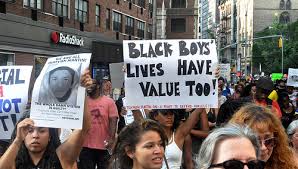(Addie spent the last year living in community at Emmaus House and serving as a fellow with The Road, the local chapter of the Episcopal Service Corp. Emmaus House was her work site as well as her home.)June 2014
Chords and Other Life-Lines, by Addie Washington
If you asked me today whether I have more clarity about what I believe—theologically, morally, politically—after this year, I wouldn’t have neat, settled thoughts to share with you. Initially, I would be tempted to tell you that the waters of my mind have been troubled rather than clarified through the many experiences of my year. Initially.
A couple Sundays ago, as we celebrated Pentecost, I felt something true wash over me while singing the offertory hymn with our small choir.
“Lord, listen to your children praying
Lord, send your spirit in this place
Lord, listen to your children praying
Send us love, send us power, send us grace”
In the midst of devastating headlines, daunting transitions at work, family dinners, prison visits, MARTA rides, food deserts, and long-distance phone calls, this moment of harmony and yearning found me and held me fast. Right there, with those kindred folks in the back of that little chapel. Like a draught of water when your mouth is utterly parched and unfamiliar. Lifting our voices in this hope, in desperation or trust, reminded me where I was. Right there, with those kindred folks in the back of that little chapel. Standing on solid ground, not sinking sand, and together.
For me, there have been a smattering of moments this year when my encounter with another has moved me so profoundly; moments of seeing more clearly or for the first time, a part of another’s journey and understanding a new piece of my own.
When I think about my learning and growth over the last year, I’m thinking about recognition of fear, and confrontation with integral Addie-weaknesses and hopes. Courage to face these coming from a life more anchored in prayer, bolstered by times of silence and reflection, but most importantly from the invitation to be with another in a moment of her or his life—in the midst of her or his own troubled waters. Peering through plexi-glass at a detainee in Stewart Detention Center and feeling how thin the barriers that differentiate us really are; playing with the little ones from the chapel and being welcomed into yet another realm of fears and dreams.
If I yearn to live in hope and courage and light in any of these moments, it’s because my life is built on that song’s simple prayer, I think. In working to grow my patience and care for others, I have to do the same work within myself. And singing that hymn with my friends and fellow saints was a reminder that we walk the road together, God burning in our hearts, stirring us on. And that strengthens me too.
“Lord, listen to your children praying,
Send us love, send us power, send us grace.”



